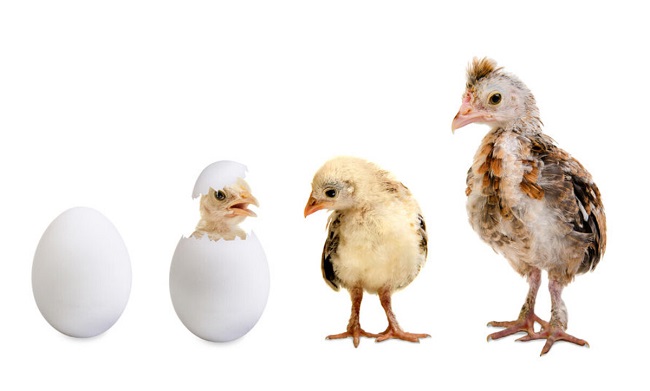Aging chickens is not as simple as counting candles on a birthday cake. Unlike most pets, determining a chicken’s age involves a careful examination of various physical and behavioral traits. This guide will explore key signs to help you identify the age of your backyard chickens.

Feather Development and Aging Chickens
Feathers can provide some of the earliest clues about a chicken’s age. Chicks have soft, fluffy feathers, while adult chickens have larger, harder feathers. Here’s a rough guide:
Newborn to 1 Week: At this stage, chicks are covered in a fluffy down.
1 to 5 Weeks: Primary feathers begin to grow on their wings.
5 to 6 Weeks: Tail feathers start to develop.
6 to 8 Weeks: The chick begins to lose its downy feathers, replaced by adult feathers.
Read Also:
Leg and Comb Development
Another physical trait to consider when aging chickens is their legs and comb.
Chicks to 5 Weeks: Legs are smooth and the comb is small and pale.
5 Weeks to 4 Months: The legs may start to roughen and the comb begins to grow and darken, especially in roosters.
4 Months to 1 Year: The comb is fully developed and bright red, legs are fully scaled.
Egg-Laying and Age
For hens, egg-laying is a significant sign of maturity, usually starting around 5 to 6 months of age. However, the number of eggs they lay and the consistency of laying can indicate age as well:
5 to 6 Months: Starts laying eggs.
1 to 2 Years: Peak egg-laying period.
Over 2 Years: Egg production gradually decreases.
Physical Changes in Older Chickens
As chickens age, they show physical changes similar to other animals:
Molting Patterns: Chickens molt (lose and regrow feathers) annually. Younger chickens molt quickly while older chickens may take longer.
Skin and Leg Color: Older chickens may have faded leg color. Skin may lose elasticity.
Behavior and Age
Observing behavior can also offer clues:
Young Chickens (Pullets and Cockerels): Highly energetic and playful.
Mature Hens and Roosters: More settled, roosters become more protective.
Older Chickens: Less active, may isolate from the flock.
Health Implications of Aging Chickens
Understanding the age of your chicken is not just a curiosity, it’s also an important part of their healthcare management. Different ages require different care and nutrition strategies. Here’s what to consider:
Nutritional Requirements Change With Age
Just like any other pet, chickens require different nutrients at different ages. Chicks require starter feed rich in protein to support their rapid growth.
Once they start laying, pullets require layer feed with more calcium for egg production. Older chickens, especially those no longer laying, may need senior feed that’s lower in calcium.
Age-Related Health Concerns
Knowing your chicken’s age can also help you anticipate and address age-related health issues. For instance, younger birds might be more susceptible to certain parasites and illnesses, while older birds could be prone to conditions like arthritis or egg-binding.
Vaccination and Deworming Schedule
Your chicken’s age will also affect their vaccination and deworming schedule. Younger birds typically need a series of vaccinations and regular deworming, while mature chickens might require fewer interventions.
Lifespan of Chickens
A chicken’s age can give you an insight into how much time you may have left with your feathered friend. While many factors like breed, diet, and care affect lifespan, most backyard chickens live between 5 to 10 years. Some exceptional chickens have been known to live into their teens or early twenties!
Read Also:
Conclusion
Determining the exact age of a chicken can be tricky, especially beyond one year of age. However, by understanding and observing these signs, you can make an educated guess about your chicken’s age. Remember, no matter their age, every chicken deserves a high standard of care for a healthy and comfortable life.
























